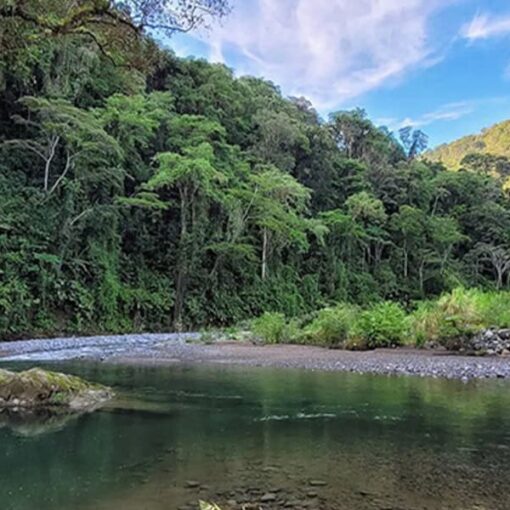Dengue fever is back with a vengeance in Costa Rica, and the numbers are alarming. According to the Ministry of Health, the country recorded a staggering 19,011 dengue cases by the end of August 2024—a huge spike compared to the 6,951 cases during the same period in 2023. The numbers from July 31 to August 30 alone show that 4,493 people contracted the mosquito-borne illness. If you’re living in or traveling to Costa Rica, now’s the time to pay attention to this growing health crisis.
The Numbers Don’t Lie
The most concerning aspect of this surge is that almost every province in Costa Rica has seen a sharp increase in dengue cases. Alajuela is leading the pack with 5,733 cases, nearly five times more than last year. Cartago, Puntarenas, and even the capital, San José, have all seen alarming rises. The only exception is Limón, which recorded fewer cases than in 2023—but don’t get too comfortable; the overall numbers are still alarming.
The dengue season in Costa Rica typically aligns with the rainy season, which spans from May to November. September and October are particularly concerning, as the weather conditions—heavy rains and standing water—create perfect breeding grounds for the Aedes aegypti mosquito, the main carrier of dengue. With September just underway, experts expect these numbers to climb even higher.
Dengue and Its Companions: Zika and Chikungunya
It’s not just dengue you have to worry about. Zika and chikungunya, two other mosquito-borne illnesses, are also present in Costa Rica. Currently, all four dengue serotypes are circulating in the country, a dangerous combination that increases the risk of severe infections. Dengue serotypes 3 and 4, which had been dormant for over 20 years, made an unwelcome return in 2022. For those unfortunate enough to contract dengue more than once—especially with different serotypes—the risk of severe complications rises dramatically.
The Dangers of Severe Dengue
For those unfamiliar with severe dengue, it’s not just another flu-like illness. Sure, it starts with the typical symptoms: high fever, headaches, pain behind the eyes, joint and muscle pain, and skin rashes. But things can quickly take a dark turn. Severe dengue can lead to internal bleeding, respiratory problems, severe abdominal pain, and even death if not treated promptly. This isn’t something to take lightly, especially if you’re in an area where dengue is prevalent.
Be Alert: Recognizing the Symptoms
Doctors are urging everyone—locals and tourists alike—to be hyper-aware of any symptoms. If you experience sudden high fever, intense headaches, pain behind the eyes, muscle and joint pain, nausea, vomiting, or red marks on your skin, don’t hesitate. Seek medical attention immediately. Delaying treatment could lead to serious complications.
The risk is especially high for people who have already been infected with dengue and are exposed to a different serotype. The body’s immune response can worsen, leading to more severe symptoms and, in some cases, life-threatening conditions. For this reason, it’s crucial to monitor your health and act quickly if you feel unwell.
Don’t Self-Medicate: Seek Professional Help
One common mistake people make is self-medicating. With dengue, this is a big no-no. Some over-the-counter medications can actually make the situation worse by increasing the risk of bleeding. The safest route is to get to the nearest health center if you’re experiencing symptoms, particularly if you’re in an area known for dengue outbreaks. Costa Rica has excellent healthcare facilities, and early treatment is key to managing the illness effectively.
Preventing Dengue: What You Can Do
The Aedes aegypti mosquito is a relentless pest, but there are practical steps you can take to protect yourself. Start by removing standing water around your home or temporary residence. Mosquitoes breed in stagnant water, so make sure to empty any containers, pots, or tires where water might accumulate. Use insect repellent, wear long sleeves and pants, and sleep under mosquito nets, especially if you’re in an area with a high number of cases.
Communities can also play a significant role in prevention. In Costa Rica, local authorities and community health workers are ramping up efforts to educate the public and reduce mosquito breeding sites. But it’s not just up to the government; everyone has a part to play. By taking small actions, like keeping your yard clean and checking for standing water, you can help reduce the overall mosquito population and keep dengue at bay.
Why This Year is Different
What makes 2024 stand out? Several factors contribute to the current surge in dengue cases. First, climate change has led to more intense and unpredictable rainy seasons, which create ideal breeding conditions for mosquitoes. Second, the return of serotypes 3 and 4 has caught many off guard, increasing the overall risk of infections. Lastly, the ongoing circulation of other mosquito-borne diseases like Zika and chikungunya adds to the public health burden, making it harder to control outbreaks effectively.
The Government’s Response
Costa Rica’s Ministry of Health is working overtime to control the outbreak, but the surge in cases has stretched resources thin. Fumigation campaigns are in full swing, targeting high-risk areas to kill mosquito larvae before they can hatch. Educational programs aimed at teaching residents how to prevent mosquito breeding are being ramped up, but the situation is still precarious.
The government is also collaborating with international health organizations to track the spread of dengue and related diseases. Still, with thousands of new cases cropping up each month, it’s clear that more needs to be done. Public cooperation is essential to controlling the outbreak, and that means everyone—tourists and locals—need to stay vigilant.
Looking Ahead: What Can We Expect?
As we move into the peak months of the rainy season, the outlook for dengue cases is concerning. With the numbers already so high, it’s crucial for everyone in Costa Rica to take this threat seriously. Whether you’re a local or a visitor, staying informed and taking preventive measures could be the difference between staying healthy and contracting a potentially severe illness.
For now, the best we can do is follow the advice of health experts: avoid mosquito bites, seek medical attention if you experience symptoms, and never underestimate the risks posed by dengue fever.
Source link
Admin



